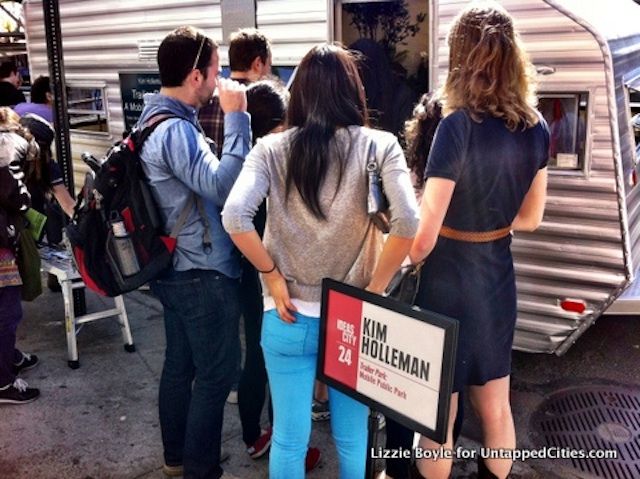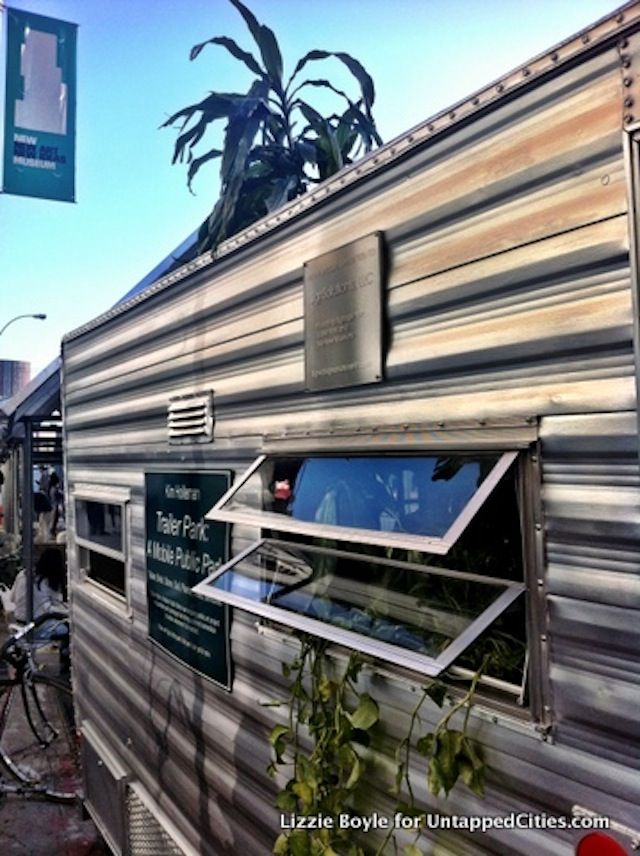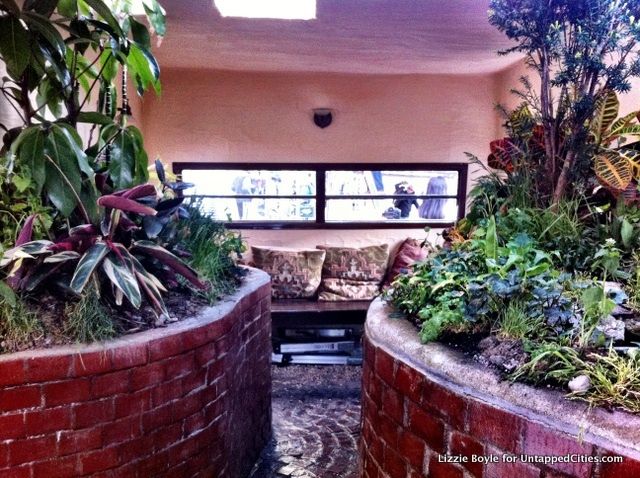Last Chance to Catch NYC's Holiday Notalgia Train
We met the voices of the NYC subway on our nostalgia ride this weekend!


The biennial festival, IDEAS CITY, hosted by The New Museum, aims to investigate the future of cities with the notion that the arts and culture play a vital role in the health of the urban core. The theme for this year’s festival was Untapped Capital (fittingly for us). Participants were called to explore the under-utilized or under-recognized resources and potential within cities.
Kim Holleman is one such artist. She has taken the often-scorned mobile trailer and created a park in its interior, turning the entire notion of “trailer park” on its head. Holleman’s ideas came from what she saw as a growing need to integrate nature into the urban environment and provide access to larger numbers of urban residents.
We were given the opportunity to ride in the trailer from the Bowery and back into Brooklyn, a trip we were told that few have actually made. Riding in the trailer as it was originally intended offered a unique perspective on the space. As we maneuvered the busy Manhattan streets, the trailer rocked and the fauna swayed. While we wouldn’t recommend walking along the brick pavers to enjoy the small fish pond inside the trailer as it moves, we did get to feel how relaxing the space actually is. The sounds of the city juxtaposed against the tranquil nature of the interiors of the trailer really brought the point home that “If you can’t go to the park, this park can go to you.”
As the remaining light of the day poured in through the carefully cut out skylights, we reflected on how park-like the space really is. Holleman leaves the trailer exposed to the elements and chooses plants based on their need for low levels of sunshine and water. By using native plants, the park generally maintains itself and is revamped after every winter season. The plants that need more light generally find their way to the unguarded skylights and shoot up through them really giving the visitor a sense that this is truly a living trailer PARK.

The ubiquitous stop and go Manhattan traffic allowed on-lookers to wave and ask where we were headed and why we were in there. As we sat back on the comfortable bench replete with pillows, we answered simply to both, “Home” and “For the ride.” The trailer was so inviting, in fact, that one gentleman decided to hop in as we were stopped at a traffic light.

Experiencing the mobility of the trailer made us realize how big of an impact a trailer like this can make in underserved neighborhoods that have limited or no access to parks. Children may have the neighborhood playground, but so often actual nature is left out of their everyday lives. The Trailer Park can serve as a respite, coming into a neighborhood for a short time for all to enjoy before it goes off and serves another group of people. Holleman created this park with urban dwellers in mind, she considers it a park for the people and not to be sanctioned off somewhere for only the privileged few. For now, you can find the Trailer Park serving the children of Poly Prep (K-6) in Prospect Park West for the next week as a joint science and art initiative. The students will learn about sustainability while exploring their inner artist to sketch the natural life within the Trailer.
You can follow the Trailer Park’s whereabouts on Facebook. You never know, just when you think you need to get out of the urban jungle, a Trailer Park oasis may be right around the corner.
Subscribe to our newsletter